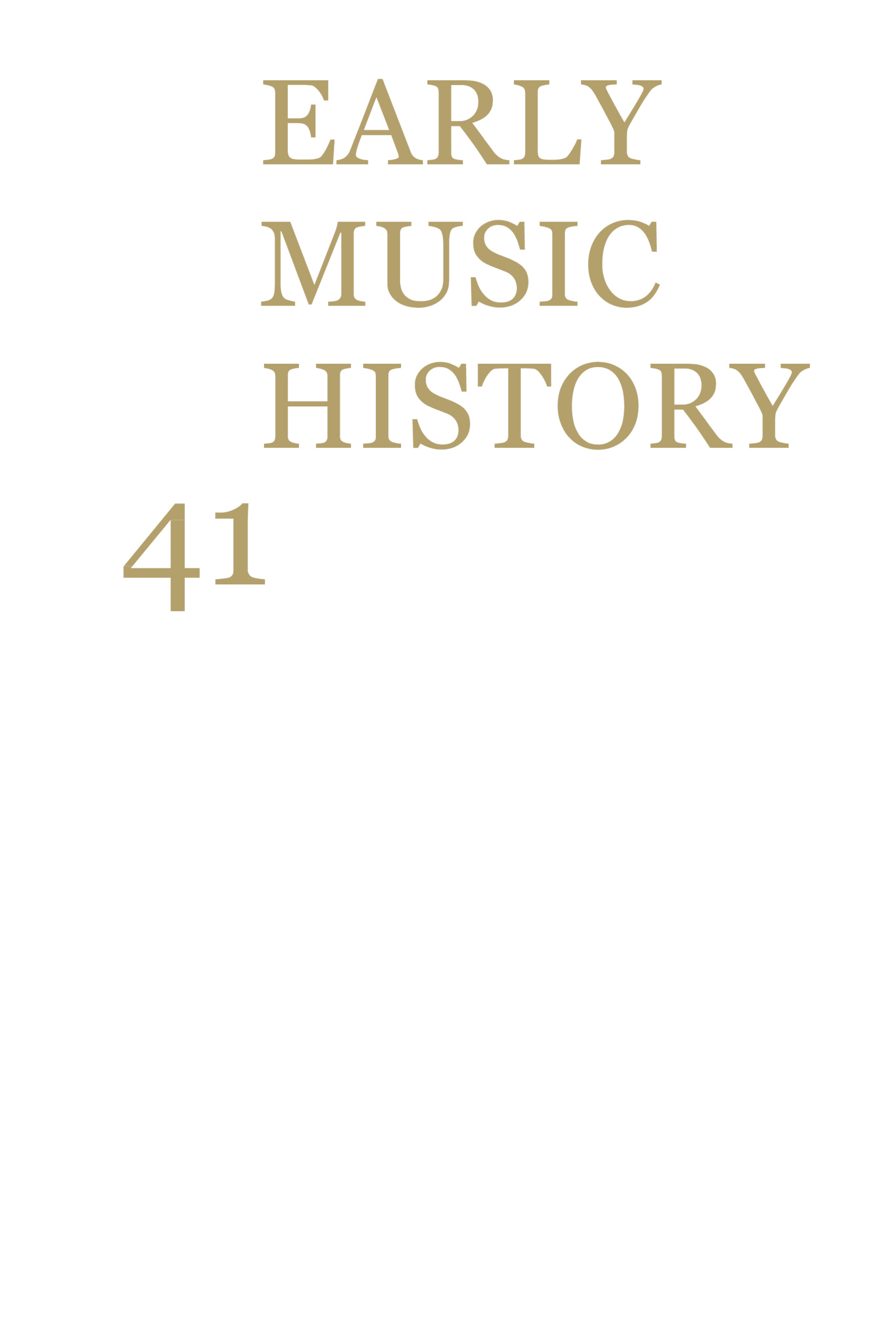Article contents
EROS AND THANATOS: A FICINIAN AND LAURENTIAN READING OF VERDELOT'S SÌ LIETA E GRATA MORTE
Published online by Cambridge University Press: 04 September 2002
Extract
The literary origins of the Italian sixteenth-century madrigal, as well as the presumed inexpressive nature of the so-called prima pratica as compared with the seconda pratica, perhaps represent two of the most abused commonplaces of modern musical historiography. Most scholars still believe that the linguistic, rhetorical and stylistic principles codified by Petrarchist humanists such as Pietro Bembo directly stimulated the birth of the new literary-musical genre. Even more problematic is the attitude of those who extract the dichotomy prima/seconda pratica from its specific cultural context - the Artusi-Monteverdi controversy - and apply it to an extended historical period, largely covering the whole history of the madrigal itself.
- Type
- Research Article
- Information
- Copyright
- © Cambridge University Press
- 2
- Cited by


